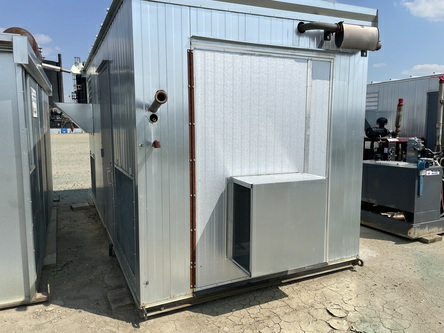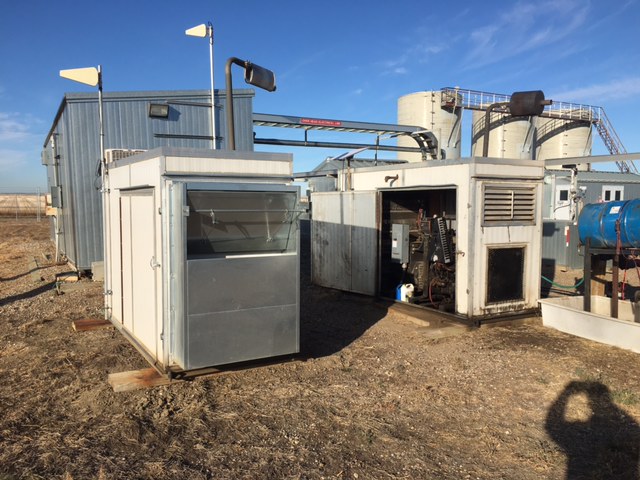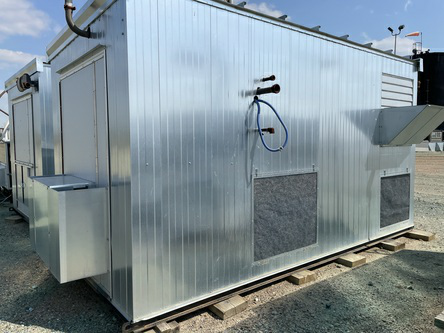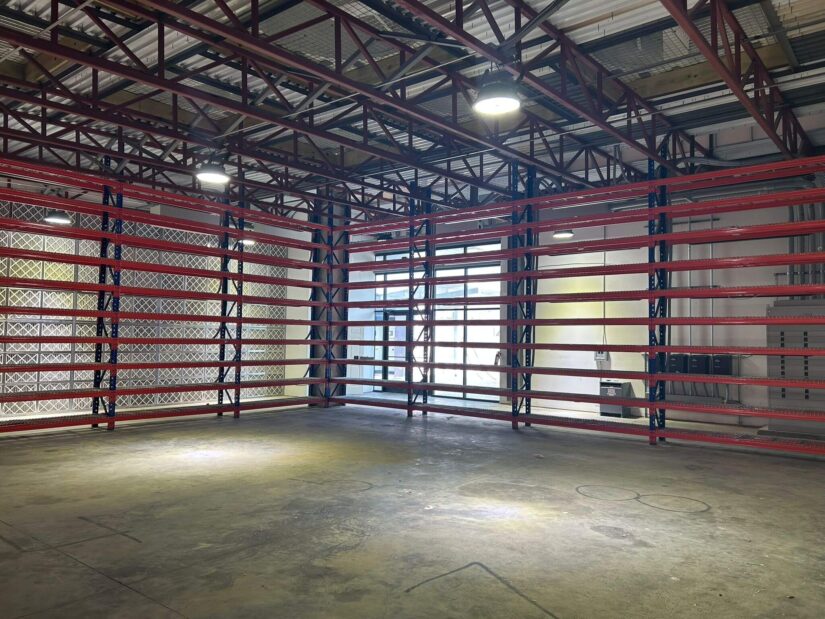Bitcoin Mining Farms For Sale
The only marketplace in the U.S. and Canada specializing in connecting clients with top-tier mining farms and equipment.
Submit your specific requirements to receive a curated list of available properties for sale.

1-10MW
1.5 to 3c kWH
Buy:$850k
Lease: 5-10 yrs
Structure: Container & gas generator

525kW
1.5 to 3c kWH
Buy:$525k
Lease: 5-10 yrs
Structure: Containers & gas generator

50kW
1.5 to 3c kWH
Buy:$65,000
Lease: 5-10 yrs
Structure: Container & gas generator

30 MW
6.5¢/kWh
Buy:Possible
Lease: $27.000
Structure: Container (client provides)

Describe your needs and we will be in touch shortly with additional details and pricing information.
We only include reliable providers in our database, and our consulting service is entirely free. Our recommendations are customized to your specific needs, such as location, budget, and power requirements. We connect you with qualified providers for pricing and additional information within hours.
Become a Provider
Share your specific needs (e.g., power, location, etc.).


Multiple qualified providers will connect with you directly. You decide on which option is best for organization. There is no obligation.
Yes! Our service is completely free for buyers. Whether you’re searching for a bitcoin mining farm, a crypto miner for sale, or exploring mining businesses for sale, we provide access to verified listings without any cost to you.
We evaluate multiple factors such as location, energy costs, equipment condition, and operational history. Whether you’re interested in a fully operational bitcoin mining farm or looking for crypto mining containers for sale, our team ensures you receive tailored options that fit your specific needs.
Yes, after you request a quote for any bitcoin miners for sale or crypto miners for sale, our team will reach out via your preferred method — phone or email — to discuss details and help you make an informed decision.
Absolutely. Our experts are ready to consult you on anything from purchasing a bitcoin mining rig for sale to understanding market trends in mining businesses for sale or evaluating bitcoin mining farms.
Key factors include:
Electricity rates (PPA agreements)
Mining hardware (type and model of bitcoin miners for sale)
Facility infrastructure (availability of crypto mining containers for sale)
Cooling systems
Scalability and future expansion options
Legal and regulatory environment
Some listings are just raw land with cost-effective power with an electrical substation on site. Others are existing mining farms with everything ready to go.
We offer a diverse selection of bitcoin mining farms and crypto mining farms. Options include turnkey operations, partially built sites, and fully custom setups. Whether you’re seeking a bitcoin miner for sale or a large-scale facility, we can connect you with the right opportunity.
A PPA (Purchase Power Agreement) is a contract between the mining farm and an energy supplier, locking in electricity rates for a specific term. PPAs are crucial when evaluating any crypto mining farm or bitcoin mining farm, as energy costs directly impact profitability.
Yes! Beyond helping you find bitcoin mining rigs for sale and existing crypto miners for sale, we also work with trusted partners who can design and build custom bitcoin mining farms, including providing crypto mining containers for sale to suit your operational needs.
Yes, financing options are available for certain bitcoin mining farms and mining businesses for sale. We can connect you with financing partners who specialize in crypto mining investments, depending on the deal size, location, and your financial profile.
New bitcoin miners for sale usually come with manufacturer warranties, higher efficiency, and the latest technology. Used crypto miners for sale may offer lower upfront costs but could have shorter lifespans or reduced performance. We help buyers evaluate both options based on ROI and long-term value.
Yes. We work with logistics and engineering partners who specialize in relocating bitcoin mining farms, whether you’re moving individual bitcoin miners for sale or entire crypto mining farms to a new location with better electricity rates or regulatory advantages.
A typical bitcoin mining farm can consume anywhere from a few hundred kilowatts to multiple megawatts depending on size and equipment. Understanding your facility’s power needs is crucial before investing in mining businesses for sale or acquiring bitcoin miners for sale.
Both have advantages. Owning your own bitcoin mining farm offers full control but comes with higher responsibilities and capital costs. Colocation allows you to purchase bitcoin miners for sale and host them in third-party facilities with professional management, which may lower operational complexity.
Cryptocurrency mining can be a lucrative investment, but one of the biggest decisions investors face is whether to buy an existing mining farm or build one from scratch. While building may seem appealing for customization, buying an operational farm is often the smarter, faster, and more profitable choice.
This guide explores all key parameters to help you make an informed decision.
Buying
Upfront Cost:
Higher initial investment but includes operational infrastructure and immediate revenue.
Lower Risk:
Existing farms have track records, making ROI estimation more predictable.
Financing Options:
Easier to secure loans and investors due to an already functioning setup.
Building
Potential for Lower Initial Cost:
If planned properly, building may be cheaper, but costs can escalate.
Customization:
Allows complete control over infrastructure and efficiency improvements.
Hidden Expenses:
Infrastructure, land, and permitting costs can exceed expectations.
Buying
Immediate Profitability:
Generates income from day one, reducing financial risk.
Proven Performance:
Existing data makes predicting future earnings more reliable.
Potential Equipment Aging:
Some farms may require equipment upgrades sooner than expected.
Building
Higher Potential ROI:
Selecting the best hardware and infrastructure can yield better returns over time.
Delayed Profitability:
Requires significant time before reaching operational efficiency.
Higher Risk of Cost Overruns:
Unexpected delays and market changes can impact ROI.
Buying
Immediate Operations:
No waiting period—start mining right away.
Less Complexity:
No need to manage contractors, permits, and hardware procurement.
Seamless Transition:
Many sellers provide training and support for a smooth handover.
Building
Significant Time Investment:
Setup can take months, delaying profitability.
Regulatory Delays:
Obtaining necessary permits and approvals can be time-consuming.
Operational Learning Curve:
Managing a mining farm requires deep industry knowledge.
Buying
Pre-Negotiated Power Rates:
Many mining farms already have agreements in place for low-cost electricity.
Existing Infrastructure:
No need to set up energy distribution or cooling solutions.
Limited Optimization:
Some older setups may not be as efficient as modern builds.
Building
Potential for Lower Power Costs:
Choosing the right location can result in cheaper energy.
Modern Efficiency:
New builds allow investment in the latest cooling and power-saving technologies.
Longer Payback Period:
Higher upfront costs for power solutions may extend ROI timelines.
Buying
Turnkey Solution:
Fully functional with existing cooling, security, and networking.
Established Location:
No need to scout and test new areas.
Potential Expansion Limitations:
Some locations may have restrictions on scalability.
Building
Custom Location Choice:
Ability to select tax-friendly and energy-efficient regions.
Scalability:
Farms can be designed for future expansion.
Longer Lead Time:
Requires building from scratch, leading to delays.
Buying
Pre-Approved Compliance:
Existing farms have already met legal requirements.
Fewer Bureaucratic Hurdles:
No need to go through lengthy approval processes.
Potential Legal Risks:
Requires thorough due diligence on existing contracts and obligations.
Building
Extensive Regulatory Process:
Multiple approvals needed before operations can start.
Greater Compliance Control:
Tailor operations to meet modern standards.
Time-Consuming Permitting:
Can delay profitability significantly.
Buying
Trained Staff Availability:
Often includes experienced employees to ensure smooth operations.
Predictable Maintenance Costs:
Easier to budget for upkeep and repairs.
Potential Upgrade Costs:
Some farms may require immediate hardware or software updates.
Building
Self-Managed Operations:
Hiring and training a team from scratch takes time and effort.
More Control Over Hardware:
Ability to install the latest mining rigs, but with higher responsibility.
Unexpected Maintenance Issues:
New setups face higher risks of early failures and inefficiencies.
Buy a Mining Farm If:
You want immediate returns without the hassle of setup.
You have the capital to invest in a proven, operational system.
You prefer a lower-risk investment with predictable expenses.
You want to avoid regulatory and permitting challenges.
You value quick entry into the crypto mining industry.
Build a Mining Farm If:
You have technical expertise and industry knowledge.
You want full control over location, energy costs, and infrastructure.
You are willing to take on more risk for potentially better long-term returns.
You have the patience to navigate regulatory approvals and infrastructure development.
You prefer customized scalability and efficiency optimizations.
Both buying and building have their pros and cons. If you prioritize immediate profitability, lower risks, and operational stability, buying a mining farm is the better option. If you have the technical expertise, patience, and resources to optimize for long-term returns, building a mining farm may be a viable choice.
Ultimately, careful research and financial planning are key to making the right decision for your crypto mining investment.
“Why QuoteColo is Unique: We’re not a data center trying to sell you on our facility – we’re a broker with 500+ partner data centers. That means our only job is to find YOUR best fit. We compare providers and hand-pick the ones that meet your needs. You get unbiased recommendations at no charge.”





– Miners [New / Used]
– Transformers
– Miner parts
– Power supply units
– Cooling Solutions
– Mining Containers/Farms